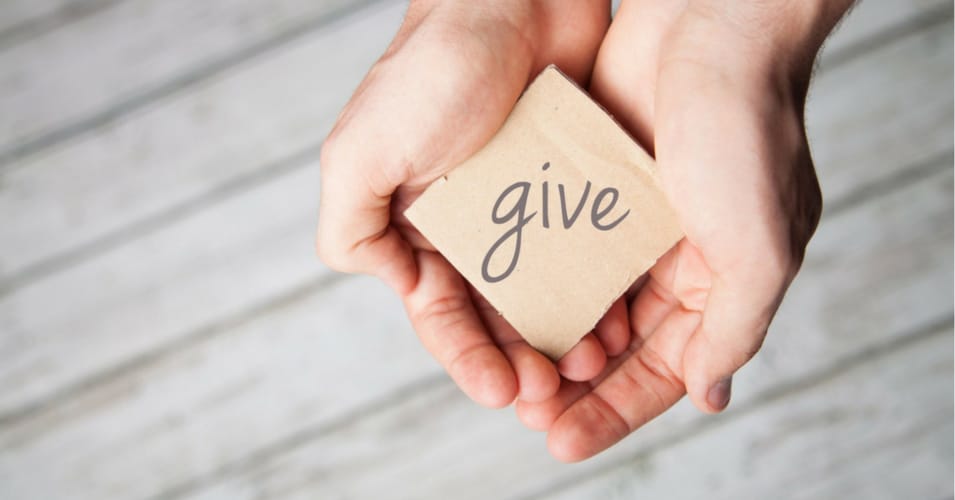
“Service to others is the rent you pay for your room here on Earth.”
— Muhammad Ali
Giving back to the community is a tradition many families take part in around the holidays, but did you know that generosity is actually beneficial for your physical and mental health?
As we embark upon the season of giving, we thought it would be appropriate to address the various health benefits associated with giving back and provide a few ideas on how you can get involved in helping to make your community a better place.
7 Health Benefits of Giving Back

By volunteering this holiday season, you can expect to reap the following health benefits:
1. Less Stress
Who wouldn’t love to rid their lives of the destructive nature of stress? If you’ve been following our blog for a while, you are probably already aware of the severe ramifications stress can have on your overall wellness. In fact, it’s so important that we’ve made stress reduction one of the five pillars of The Hache Protocol for Pain Reduction ™.
The science behind it: One study, published in Innovation in Aging, found a correlation between acts of kindness and decreased cortisol levels in participants. When volunteers participated in charitable activities, the amount of stress hormones in their saliva lowered.
The bottom line? If stress is affecting your health, do good for someone in your community. It’s a win-win.
- If you’d like to live with less stress, please click here to read our blog from 2020 about dealing with holiday stressors.
2. Better Sleep
Another pillar of The Hache Protocol™, proper sleep, can be achieved through charitable acts of kindness this holidays season.
The science behind it: One 2017 study published in The journal Sleep Science Practice found that older participants who were more inclined to give to others were:
- 63% less likely to experience sleep apnea
- 52% less likely to experience restless leg syndrome
The bottom line: Givers were found to achieve better quality sleep overall.
- For three all-natural sleep aids (that actually work), please read our blog post, Can’t Sleep? Try our 3 Holiday Sleep Tea Recipes.
3. Exposure to New Ideas
Volunteering makes you more aware of cultural and social issues in your community, making you a more well-rounded person. And BONUS – learning new things regularly could reduce your risk of age-related cognitive decline.
The science behind it: Research shows that those who volunteer for as little as one hour per week decreased their dementia risk by an impressive 2.44%.
4. Lowers Blood Pressure
If you’re one of the 116 million Americans who suffer from hypertension (or high blood pressure), you may want to consider volunteering or giving back. According to the CDC, two hypertension-related conditions – heart disease and stroke – are the leading causes of death in the U.S.
The science behind it: One study published by Carnegie Mellon University in Pittsburgh showed that those who volunteer for at least 200 hours per year have a decreased risk of hypertension – 40% less, in fact – than those who did not volunteer.
5. Improves Heart Health
Your heart health and emotional wellbeing are intrinsically linked; this concept is proven by the scientific acceptance of “broken heart syndrome.” Broken heart syndrome is a very real physiological consequence of physical and/or emotional stress.
If you’ve ever felt ill after a breakup or losing a loved one, you know how intertwined our hearts and minds are. However, giving back can have the opposite effect on your health. It causes healthy hormones to kick into high gear and stabilizes your emotions. An improved cardiovascular environment might help reduce your risk of heart disease and other conditions related to heart health.
- To learn how Nitric Oxide supports a healthy heart and safe blood pressure, please read our blog post, Top 8 Health Benefits of Nitric Oxide.
6. Decreases the Risk for Substance Abuse
Substance abuse issues deteriorate communities and families all over the globe, with a staggering 47,600 opioid-related deaths being reported in the United States in 2017. So, what can we do to safeguard ourselves from the threat of drug addiction? Give back!
The science behind it: According to Addiction Center, a guide for addiction and recovery, replacing negative habits with healthier ones is one of the most effective ways to break free from the chains of substance dependency. So, why not consider volunteering at a local animal shelter or veteran’s home instead of putting yourself in a situation where you will be tempted to use drugs and/or alcohol?
- We recently addressed the ramifications of the opioid epidemic in an article we wrote for Inspiring Lives Magazine. If you’d like to read it, please click here.
7. Alleviates the Symptoms of Depression
With seasonal depression kicking into high gear, many of us don’t consider the holidays the most wonderful time of the year. If getting motivated to get out of bed is an issue, having people count on you may be the motivation you need to get dressed and out of the house. Additionally, volunteering can help you foster feelings of self-worth and value.
The science behind it: Researchers recently evaluated over 27,000 individuals from 15 countries, and the results confirmed an association between regular volunteering and lower rates of depression. They suspect that the correlations develop due to the higher level of social engagement these individuals enjoy
- To learn more about seasonal depression and how scalar energy healing can help you effectively overcome it, please read our blog, Scalar Energy for Winter Health Support.
5 Ways to Give Back in 2021: Ideas for Getting Involved

Wondering how you can get involved in your community and give back this year? Please consider the following ideas:
- Volunteer at a local animal shelter. You can walk dogs, socialize fuzzy kittens, or even open up your home to a foster. If you don’t have time to spend, many shelters have wish lists of products like food, bedding, and cleaning supplies that you can ask for. And of course, cash is always a great help.
- Work to support foster care networks. There are many foster care networks worldwide that need your support. Reach out to a local foster care group to see if they need school supplies, winter boots, or gift cards for healthy meals.
- UNICEF. Works in over 190 countries and territories all over the world. Their mission is”to save children’s lives, to defend their rights, and to help them fulfill their potential, from early childhood through adolescence.”Learn more about UNICEF here.
- Support the homeless. If your community has a homeless shelter, warming center, or women’s domestic abuse shelter – they’d love to have your support.
- Interact with elders in your community. Many older adults report feelings of loneliness. Maybe they lost their partner, or their family lives far away. Reach out to elder care facilities in your community to see if they have a buddy program where you can go in and keep them company on a cold winter night. Sharing a soothing mug of tea with a senior can make all the difference in their health – and yours!
Help Spread the Word and Reap the Health Benefits
We hope this blog post has convinced you of the myriad benefits of giving back this holiday season. By volunteering your time, money, or support to local aid organizations in your community, you are doing a fantastic service to the collective whole and your own individual health.
We encourage you to share this post with your friends and family right away. It could make all the difference in their physical and mental health this year.
After all, we are a global community, and when we hold each other up – anything is possible!
Sources cited:
Volunteering can reduce dementia risk in seniors, study finds (medicalxpress.com)
Facts About Hypertension | cdc.gov
4 Steps to Breaking a Bad Habit and Forming a New One: Addiction Center
Study: Volunteering is linked to reduced depression via increased social connectedness (psypost.org)





